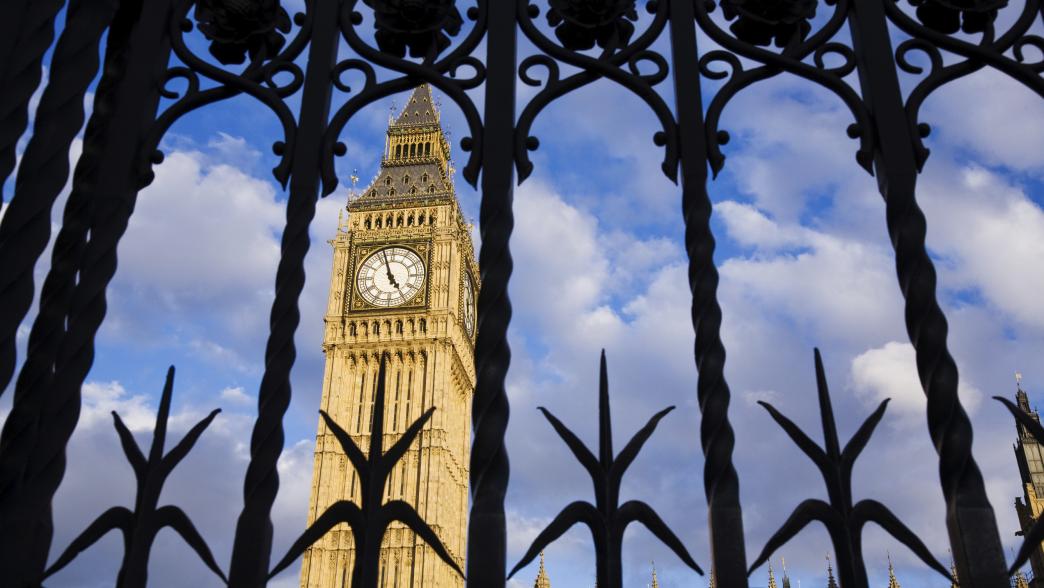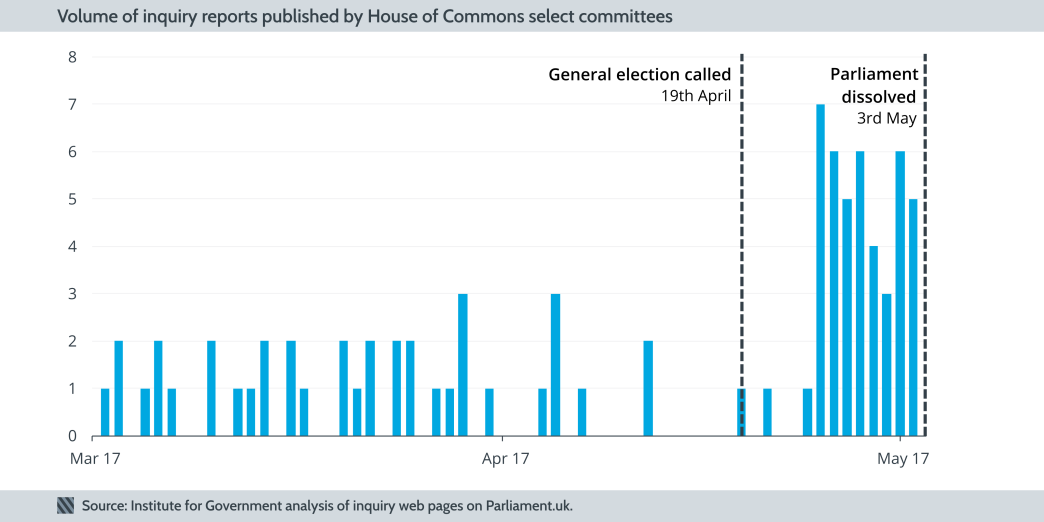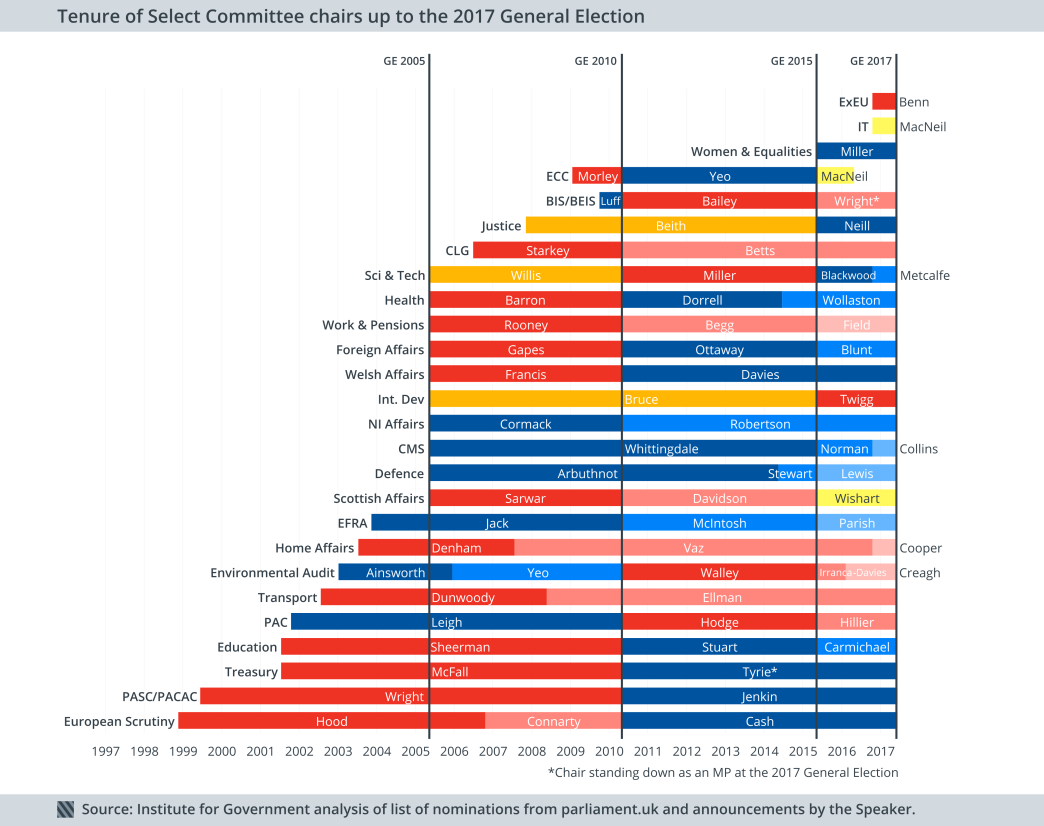
Commons select committees had more than 300 parliamentary inquiries into government policy and spending underway when the election was called. Dr Hannah White says the unexpected election will inevitably disrupt committee scrutiny of government.
A waste of effort
The unexpected curtailment of the 2015 Parliament, and the short timescale for the dissolution of Parliament and holding of the election, have meant a rushed situation for select committees.
Over the last week:
- Commons committees were rushed into concluding ongoing inquiries, prematurely publishing reports and reams of written and oral evidence.
- Planned visits by the Defence Committee and Committee on Exiting the EU had to be cancelled.
- Almost 100 inquiries were left unfinished, so we will never know what conclusions the committees might have drawn from their work.
- Other reports have been rushed out to avoid the work being completely nugatory, with 45 reports published since the election was called.
The Government has also been let off the hook for being obliged to respond to outstanding reports, with 122 inquiry reports (including those published since the election was called) still awaiting a government response when Parliament was dissolved this week.
All this amounts to a tremendous waste of parliamentary effort and a missed opportunity for positive influence on the running of government.

Loss of expertise
The chairs and members of select committees are elected afresh in each Parliament. Many of the committees in the 2015 Parliament were just getting into their stride – building their expertise and credibility and making a positive impact through their scrutiny. Now they will all go back to square one.
There is likely to be a significant degree of churn amongst the chairs of committees. We already know that two highly effective chairs – Andrew Tyrie (Treasury) and Iain Wright (Business, Energy and Industrial Strategy) – have decided not to stand again as MPs. The current rules mean that Louise Ellman (Transport) won’t be allowed to stand again as chair.
Five other chairs originally elected in 2010 – Bernard Jenkin (assuming the Public Administration and Constitutional Affairs Committee is deemed to be the same committee as the Public Administration Select Committee), Clive Betts (Communities and Local Government), David T C Davies (Welsh Affairs), Laurence Robertson (Northern Ireland Affairs) and Sir William Cash (European Scrutiny) – would, if reelected, have to stand down mid-Parliament in 2018. This is because they will be caught by the rule that prevents committees being chaired by the same MP for more than eight years or two Parliaments (whichever is the longer).

There will also be churn in the membership of committees as members may lose their seats. If the party make-up of the Commons changes, then the proportion of chairs and places on each committee allocated to each party may change. And of course, elections of committee members (by their own parties) may well lead to different outcomes.
All this means expertise and institutional memory lost with a knock on impact on the effectiveness of scrutiny.
A scrutiny gap
Holding an election just before the summer recess means it is unlikely that committees will be fully established before Parliament breaks for the summer. So, it is therefore probable that committees won’t start work properly until October, following the conference recess. Lords committees can resume their work as soon as the new Parliament meets on 13 June, but there will be a five-month hiatus in the Commons’ ability to hold government to account.
The biggest casualty in this will be effective scrutiny of Brexit, which will of course dominate the next Parliament. Parliament had set off a wave of inquiries into Brexit, but the early election means many of these have been left unfinished.